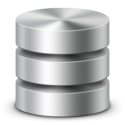Presentation
First, let’s talk about REST apis. REST apis are very popular nowdays because they are easily accessible from any client able to make http(s) requests. The beauty of this is that you can access different systems through these rest apis independantly of how the system is built in the backend. For example I can access with a simple curl command the twitter, youtube or any public api which will return me data.
Rest APIs usually present data as a JSON object. If your are not already familiar with JSON here is an example of a JSON object:
{"menu": {
"id": "file",
"value": "File",
"popup": {
"menuitem": [
{"value": "New", "onclick": "CreateNewDoc()"},
{"value": "Open", "onclick": "OpenDoc()"},
{"value": "Close", "onclick": "CloseDoc()"}
]
}
}}
Oracle 12.1.0.2 introduced the support of JSON as a datatype and methods to query JSON objects. This make things a lot easier when you have to work with these data structures.

